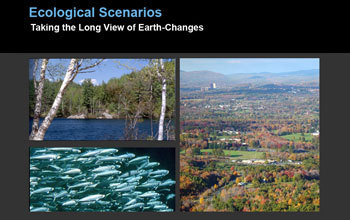Fact Sheet
Long-Term Ecological Research (LTER)
April 21, 2015
This material is available primarily for archival purposes. Telephone numbers or other contact information may be out of date; please see current contact information at media contacts.
NSF's Long-Term Ecological Research (LTER) program is a network of long-term research projects aimed at understanding ecological processes in a wide range of ecosystems. LTER supports fundamental ecological research that requires data collection over long time periods and often at large spatial scales. NSF established the LTER program in 1980.
The two dozen field sites focus on: 1) understanding ecological phenomena that occur over long temporal and broad spatial scales; 2) creating a legacy of well-designed, long-term ecological experiments; 3) conducting major syntheses and theoretical efforts; and 4) providing information to identify and to address environmental problems.
LTER projects represent a diversity of habitats in continental North America, the Caribbean, Pacific Ocean, and the Antarctic, including coral reefs, arid grasslands, estuaries, lakes, prairies, forests, alpine and Arctic tundra, urban areas, and agroecosystems. Funding for LTER is provided by the Biological Sciences, Geosciences, and Social, Behavioral & Economic Sciences directorates.
-NSF-
Related Websites
LTER Network: http://www.lternet.edu/
The U.S. National Science Foundation propels the nation forward by advancing fundamental research in all fields of science and engineering. NSF supports research and people by providing facilities, instruments and funding to support their ingenuity and sustain the U.S. as a global leader in research and innovation. With a fiscal year 2023 budget of $9.5 billion, NSF funds reach all 50 states through grants to nearly 2,000 colleges, universities and institutions. Each year, NSF receives more than 40,000 competitive proposals and makes about 11,000 new awards. Those awards include support for cooperative research with industry, Arctic and Antarctic research and operations, and U.S. participation in international scientific efforts.
Connect with us online
NSF website: nsf.gov
NSF News: nsf.gov/news
For News Media: nsf.gov/news/newsroom
Statistics: nsf.gov/statistics/
Awards database: nsf.gov/awardsearch/
Follow us on social
Twitter: twitter.com/NSF
Facebook: facebook.com/US.NSF
Instagram: instagram.com/nsfgov



